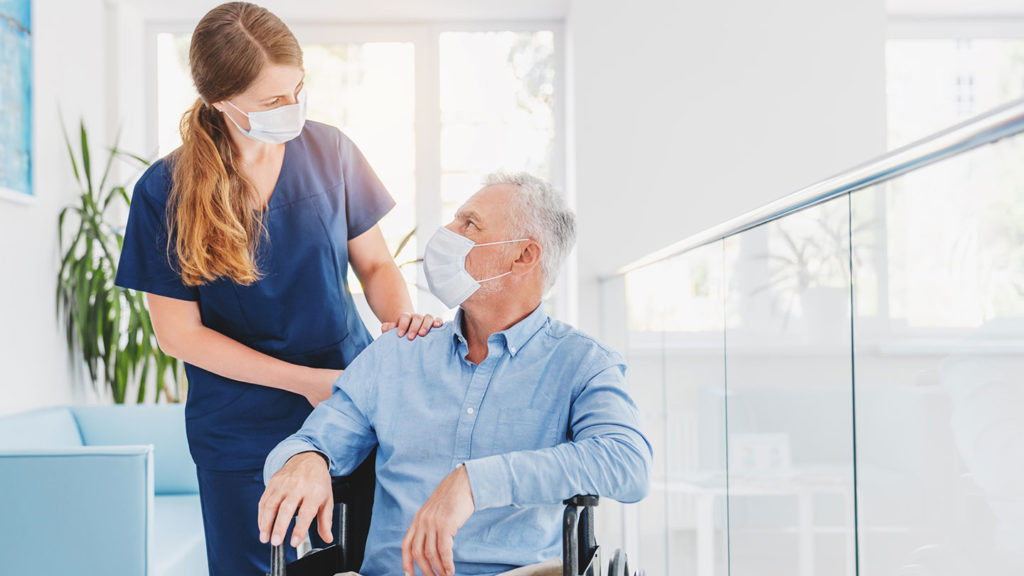
With a goal of reaching 100,000 older adults by 2023, Goodwin House Inc. partnered with George Mason University to study the effect of its StrongerMemory Program on cognitive ability, memory retrieval and life satisfaction.
The program was created by Goodwin House President and CEO Rob Liebreich after watching his mother’s challenges with mild cognitive impairment. Inspired by the SAIDO Learning program developed by the Kumon Institute of Education of Osaka, Japan, Liebreich developed StrongerMemory to stimulate the brain’s prefrontal cortex, which governs the ability to retrieve memories. Participants spend 20 to 30 minutes daily engaged in simple reading, writing and math activities. The goal of the program is to delay or slow the symptoms of mild cognitive impairment and / or dementia.
“After introducing a daily curriculum to read out loud, hand write and complete basic math quickly with my mother, our family saw significant changes for the better in a matter of a month,” Liebreich said, adding that he decided to roll out the program at the Alexandria, VA-based operator’s life plan communities and to home care residents.
A team of George Mason University gerontology researchers and students conducted an 11-week study last fall, interviewing 21 program participants and caregivers from the GHI pilot program. The university’s Department of Social Work introduced phase two of the study in March with a focus on pre- and post-testing of participants using the MoCA Memory Functioning Questionnaire and a brief Satisfaction with Life Scale.
The ongoing second phase of the study will include residents of the senior living and care provider’s two life plan communities — Goodwin House Alexandria and Goodwin House Bailey’s Crossroads — and members of Goodwin House at Home.
In a report on the initial study, researchers said that some residents were motivated to participate in the program because of fears of memory loss based on experiences of family and friends. Others said they had become forgetful.
The researchers also noted that participants perceived being “cognitively fit” as just as important as being physically fit. Participants self-reported being “less foggy” and able to remember things differently than they could before starting the program.
“Participants in the initial study were highly motivated to integrate StrongerMemory into their daily lives and showed willingness to complete the activities to stay cognitively fit,” said Catherine Tompkins, Ph.D., George Mason University’s associate dean for faculty affairs. “Our initial interviews show satisfaction, enthusiasm and commitment to the StrongerMemory program.”
Based on the positive feedback from residents and initial study results, Liebreich said his goal is to help 100,000 people by 2023 through the program, which he plans to offer for free and to create partnerships to reach those who would benefit.
To meet his goal, GHI recruited Jessica Fredericksen, a certified dementia practitioner with a master’s degree in gerontological social work, for a new role, brain health program manager. Goodwin House also partnered with the Village to Village Network to offer the memory program to older adults across the country.




